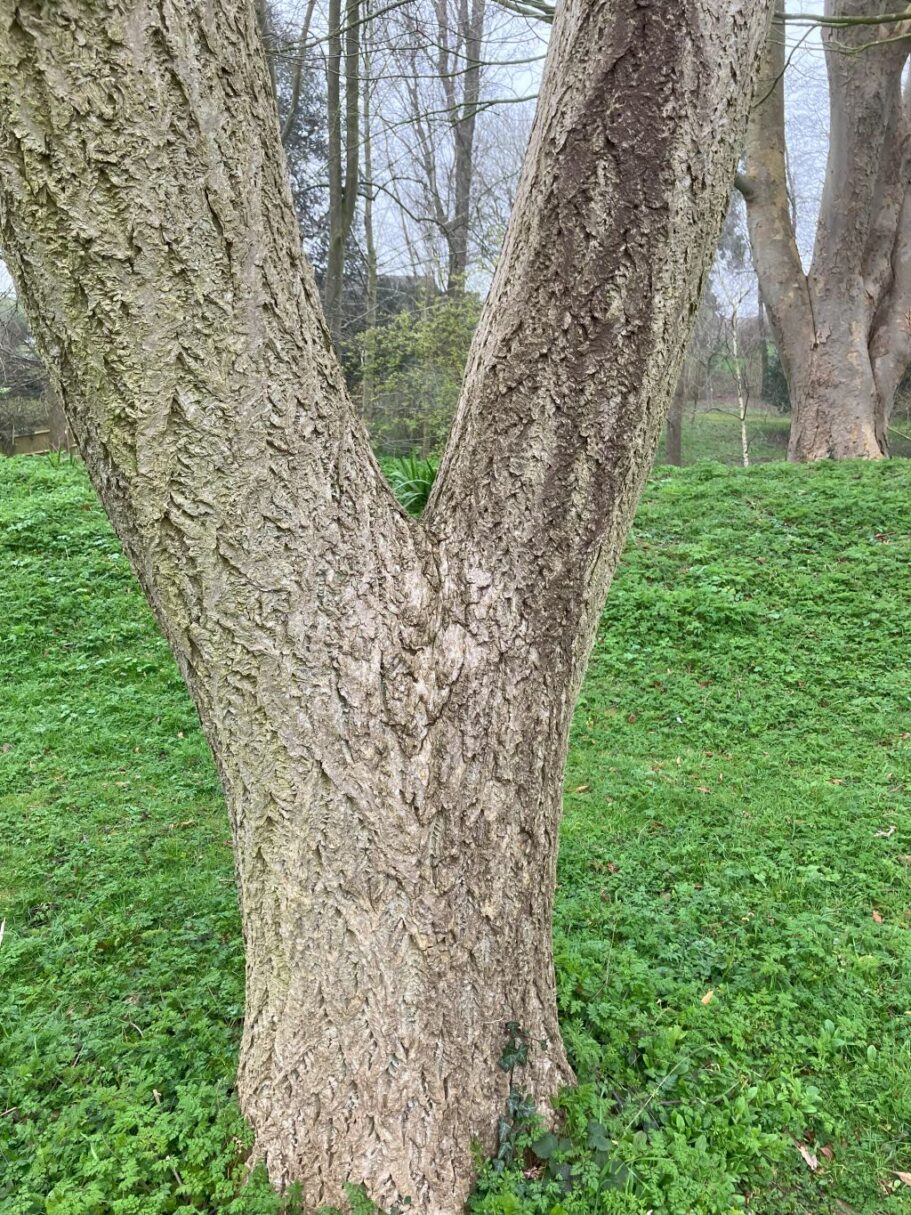#58 SAKHALIN CORK TREE
Phellodendron amurense var. sachalinense

Planted: 1931
This tree is in the centre of the Chinese and Japanese section.
| Distribution: | Native to Sakhalin (a Russian island), Korea, northern Japan and western China. |
| Planting Date: | 1931 purchased from Thomas Smith, Daisy Hill Nursery, Newry, Northern Ireland. |
| Growth Habit: | Deciduous tree, , fast growing, vase-shaped. |
| Bark: | Bark dark brown, slightly fissured and finally broken into thin plates. Bark is less cork like than #59 Phellodendron amurense. |
| Leaf: | Leaves opposite, pinnately compound (odd), 7 to 11 leaflets. Ovate to ovate-oblong, 6 to 12 cm long. Tip acuminate, base rounded or wedge-shaped. Dull green above, hairless (glabrous) below. Yellow in autumn. |
| Flowers: | Flowers yellow-green, in glabrous clusters (panicles), 6 to 8 cm long. |
| Fruit: | Fruit about 1 cm across, blue-black. |
| Toxicity: | High doses can cause nausea & vomiting. |
| Potential tree size | 12 m tall |
| Uses: | Used for furniture, the interior finish of buildings. |
| Plant Hunter: | (Carl) Friedrich Schmidt (1832-1908), a botanist in the Russian Empire visited Sakhalin in 1866. Identified by Charles Sprague Sargent (1841–1927), first director of the Arnold Arboretum. |
| Introduction Date: | Introduced to the Arnold Arboretum in 1877; thence to Kew in 1904 |
| Anecdotes and Comments: | An oil obtained from the seed has insecticidal properties similar to pyrethrum. |